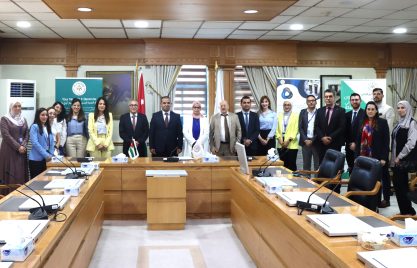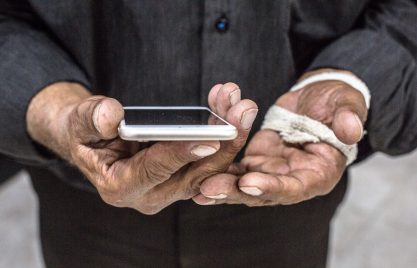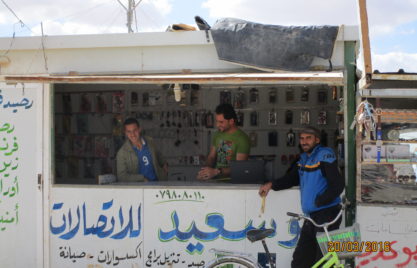Sector participants inform her Majesty Queen Rania about Microfinance in Jordan.
Her Majesty Queen Rania on Wednesday met with representatives of several microfinance organisations and beneficiaries, in a meeting that highlighted the successes and challenges of the growing sector.
Her Majesty stressed the importance of increased coordination and cooperation amongst the different microfinance institutions, in order to align their work and combine efforts, saying that there needs to be “special emphasis on empowerment of entrepreneurial youth”.
The meeting, which was attended by Minister of Planning and International Cooperation Jafar Hassan, included a brief introduction on the microfinance sector and a presentation by the Jordan Microfinance Network (Tanmeyah), a non-profit organisation that represents microfinance institutions (MFI) in Jordan, according to a statement from the Queen’s office.
Hassan explained that the planning ministry is currently in the implementation phase of a new strategy for the microfinance sector that aims to increase low-income families’ access to comprehensive financial services, as well as develop new lending products.
He added that the new strategy focuses on coordinating efforts under one umbrella that oversees the work of the sector and initiates a self-censorship system through a network to regulate the internal affairs of MFIs and to improve their overall contribution to the process of sustainable local development.
Following the planning ministry’s recommendations on the National Policy Framework for the microfinance sector, which outlined the roles of both private and state institutions in the sector, Tanmeyah emerged in 2007 as the national representative of private microfinance institutions, replacing the Microfinance Association of Jordan, the statement said.
Tanmeyah members include the National Microfinance Bank (Al Watani), Jordan Microcredit Company (Tamweelcom), Micro Fund for Women, Middle East Micro Credit Company, Finca-Jordan, Ahli Microfinance Company (Al Ahlya), Cairo Amman Bank and the UNRWA microfinance department.
Citing the network’s latest studies, Tanmeyah Chairman Mustafa Nasereddin said its members reached more than 224,000 active borrowers in the first half of 2012, adding that these borrowers were predominantly women, and received active loans that amounted to JD248,000.
The meeting also included a briefing about the Development and Employment Fund (DEF) by its director, Omar Al Omari.
Established by the government in November 1989, DEF is a specialised development entity that is financially and administratively autonomous and is financed by international donors, the Treasury and local private donations.
The fund aims to enable poor, low-income or unemployed individual, families or groups to engage in work and production in order to contribute to the fight against poverty and unemployment.
The meeting also highlighted the microfinance sector’s major challenges, including the lack of legal supervisory consistency, the statement said.
Participants said there are currently no restrictions under the law that limit or regulate the types of institutions that can engage in microfinance lending.



